1 does not cause insulin release
2 may provoke lactic acidosis
3 requires monitoring of renal function
A 1, 2, 3
B 1, 2 only
C 2, 3 only
D 1 only
E 3 only
Pharm. (Mrs) Clare Omatseye is the president, Healthcare Federation of Nigeria (HFN) and founder/managing director of JNC International Limited (JNCI). She is a Pharmacy graduate of Ahmadu Bello University, Zaria. She also holds an MBA from Universidad De Navarra (IESE), Barcelona, Spain.
Omatseye started her career with an internship stint at Sterling Health (now GlaxoSmithkline). She later moved to May & Baker Nigeria, where she had a progressive career in several job roles – sales representative, product manager (Vaccines), business development manager (Pasteur Merieux Connaught) and national sales development manager.
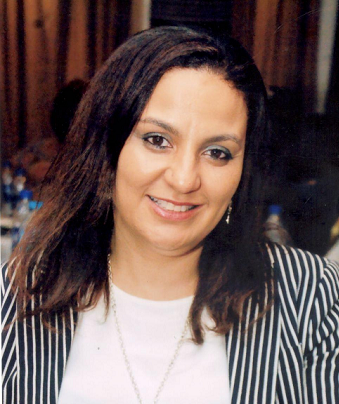
Following her remarkable stint at May & Baker Nigeria, she became the executive director, Business Development, at Aventis Pasteur Nigeria (a French multinational pharmaceutical company) where she spent another two and a half years, before taking on a new frontier position as the country manager (Nigeria) for Huntleigh Healthcare UK Plc – a British multinational quoted on the NYSE.
Omatseye, who is currently vice president of the West Africa Healthcare Federation, founded JNCI in 2004, with the vision to make a difference in the medical infrastructure industry in Nigeria, through the delivery of innovative medical diagnostic and interventional technology solutions and after sales service.
Over the last two decades, she has grown JNCI into a mega enterprise, receiving several local and international recognitions and awards, including the renowned Frost & Sullivan Award for Quality in Customer Service.
The consummate entrepreneur has, over the years, developed the required capabilities to effectively monitor and oversee installations/turnkey projects from the budding phase through execution to commissioning and post commissioning. She is highly skilled in healthcare equipment consultancy, management of healthcare equipment installation and turnkey projects, project planning, management and integration, resource sourcing, healthcare solutions consulting and advisory.
An active advocate of affordable healthcare in Nigeria, Omatseye was recently elected pioneer president of the Healthcare Federation of Nigeria (HFN). She is also a member of several associations in the healthcare industry, such as the Pharmaceutical Society of Nigeria (PSN), the Society of Quality in Healthcare in Nigeria (SQHN), Society for Corporate Governance (SCG), Paediatric Association of Nigeria (PAN) and Women in Successful Careers (WISCAR).
She is also the founder and chairman, Vaccipharm Limited, a cold-chain vaccines & pharmaceutical distribution firm that she founded in 1999; She is the first female director, Society for Corporate Governance (SCG); and director, advisory board of the Entrepreneurial Development Centre (EDC) of the Lagos Business School.
A dedicated Rotarian and visiting facilitator at the EDC, Omatseye is married and blessed with children.
Internship for graduates of Nursing Science
Internship is a sine qua non to professional development, capacity building and professional competency for graduates of healthcare professions in general and nurses in particular. Our leadership was able to propose, defend and actualise the approval of the internship scheme for graduates of nursing sciences in our universities. It is noteworthy that our efforts at ensuring rightful placement of the nursing interns in the healthcare workforce came to fruition when the NCE in 2016 approved the inclusion of intern cadre in the unified schemes of service for nurses. The next challenge here involves striving for proper placement.
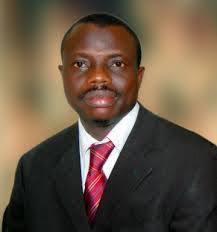
Harmonising education with practice
Historically, it was evident that nursing practice and nursing education were interwoven. We began in a collaborative mode, but we lost the tie that bound the two variables together.
Nursing was striving to be at par with other health professions. To promote this goal, nursing unguardedly created a wide gap between its education and practice, leading to educational and practice differences, as well as superiority and inferiority complexes among nursing personnel – based only on citadel of learning and training but not on professional qualifications, competencies, and adherence to ethical standard compliances.
Nurses engaged in in-fighting, running down each other and defacing and also debasing the profession. Painfully, there were nurses that empowered and collaborated with detractors other health professionals and administrators to render deadly blows to nursing professional developments.
It is only in nursing in Nigeria that you produce a product that you are not proud of, much less market to services consumers. England (1986) in Igbinlade (2010) once recognised the cause of the widened gap between nursing education and practice as that of “bad mentorship”. She noted that the art of mentorship had its beginning in early Greek times but has been utilised inconsistently in the nursing arena, adding categorically that: “nursing is a profession that has demonstrated serious lack of talented mentors.”
Schoor also supported this by referring to most mentors of nursing as “self-centered” and that lack of cohesion on the part of these mentors had greatly distorted the attainment of positive dividends that the transition of nursing education from diploma to degree might have ushered.
It is therefore pertinent that we, as nurses retrace our steps’, examine further and critically those factors responsible for the gap between nursing education and practice and if it was not so, institutionalise corrective steps for harmony. This trend has also compromised the image of nurses in the public glare and mostly among health administrators and the media practitioners.
Way forward
My suggestion is effective collaboration among the arms of nursing – that is, nursing practice and nursing education, administration, regulation and association. Gilson-Parkevich (1992) in Igbinlade (2015) stated it well that “we all possess talents, expertise and creativity within our individual selves to shape our collective destiny”.
Babajide (1996) in Igbinlade (2015) also likens the nursing profession to that of a baby dove who unfortunately had its egg hatched by a mother hen along with other chickens. The baby dove later continued to peck on the ground with its otherworldly designed “family” but every time it looked at the sky and watched other doves fly, it envied them and sang, “If I had the wings of a dove, I would fly high…”
Nursing profession is like that dove with all the characteristics required for it to fly high, but if care is not taken, a chicken will emerge instead. Appropriate and amiable developmental traits are inherent in Nursing; let us use them positively.
The regulatory body of the profession – the Nursing and Midwifery Council of Nigeria (NMCN) – must initiate and collaborate with relevant bodies and organisations. The National Association of Nigeria Nurses’ and Midwives’ (NANNM) as the only recognised association of nurses in the country must not relent in providing leadership in championing the task of professional struggle and extend the frontier of professional unionism beyond the regular public sector. This was corroborated by Prof. E. O. Ajao in his inaugural lecture in 2016.
Past and present service chiefs of nursing services must partake in the transformative agenda. The nurse scholars at the training institutions and universities must also be ready to use their position to pave way for development and increased access to education.
The effective collaboration of the aforementioned stakeholders will go a long way in making nursing education reform a transformational tool for improved healthcare delivery system.
By Comrade Nurse Abdrafiu Alani Adeniji
Your natural talents are inborn and programmed in your subconscious mind. You have to discover your area of natural talent and ability and then develop it. On the other hand, skills are learnable. They are not genetically determined. You learn a skill by practice and repetition.
Your skill can make you known, admired and valued. Think of persons who have come to the limelight in their fields and observe what made them prominent. Proverbs 22:29 (Amplified) says, “Do you see a man diligent and skillful in his business? He will stand before kings; he will not stand before obscure men.” You are at your best when your skills are in tandem with your talents. According to Larry Bird, “A winner is someone who recognises his God-given talents, works his tail off to develop them into skills to accomplish his goals.”
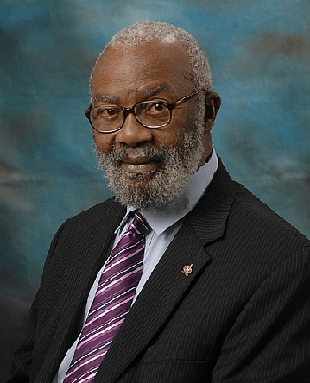
A skill may be defined as an ability and capacity acquired through deliberate systematic, and sustained effort to smoothly and adaptively carry out complex activities or job functions involving ideas (cognitive skills), things (technical skills) and /or people (interpersonal skills).
Skills are broadly divided into hard and soft skills. Hard skills are learnt in the classroom through books or training materials or on the job. Examples are machine operation, typing, playing games and proficiency in foreign language. These skill sets are easy to quantify.
Soft skills are subjective and much harder to quantify and are also known as “people skills” or “interpersonal skills”. Examples are communication, leadership, motivation, patience and teamwork.
Many skills are dependent on one another. Sometimes you need to learn a skill you do not enjoy but it is needed for you to use other skills. For example, in order for me to obtain admission to study Pharmacy in the university, I had to work hard on my Physics, which I did not enjoy. But I needed it to go along with Chemistry and Zoology for the required combination. If you want to become a good journalist, the skill of interviewing people must be learnt.
Improving your skill in a certain area can cause remarkable improvement of your productivity and income. If you are weak in a particular skill that you need to excel, you can determine to learn it instead of allowing it to hold back your progress.
One skill I learnt in my secondary school (Dennis Memorial Grammar School, Onitsha) in the fifties was photography. Students had a variety of hobbies like shoe-making, bookbinding, tailoring, carpentry, agriculture, music and so on. We were encouraged to get involved in one or two hobbies, depending on our areas of interest.
I chose photography and we were assigned to a professional photographer (Ugha’s Photos) to learn various aspects of photography, including focusing, snapping, developing and printing. That experience became very relevant when I got into pharmaceutical journalism in 1979. Taking good photographs became one of my greatest advantages.
Many current university graduates are not employable because they lack certain skills required by employers but which they could not acquire in the university. Even graduates of professional courses need to sharpen their skills after their university programmes because employers are concerned with performance and productivity.
Employers are now giving soft skills the desired consideration during employment interviews. As a matter of fact, you cannot be a successful physician if you do not relate well with your co-workers and patients. Your attitude can cause you to lose your patients. This is one of the reasons the interprofessional relationship in the healthcare system of the country has been unacceptable, resulting in poor health services.
In order to move to the top of your field and achieve excellence, there must be a price to pay. It is the price of success which involves mastering a difficult skill you need to be the best at what you do. If you desire to master a skill, you need to read, learn and practise it regularly. The more you practise what you learn, the faster you will become more competent and skilled in that area. The more you practise, the more confidence you will develop.
I have, on several occasions, tried to play the keyboard but never persisted in practising it steadily. After a long time of no practice, the little bit I learnt was forgotten. Then another session of learning was embarked upon. This is not a good way of acquiring a skill. There must be persistence and commitment to practise and improve in learning.
Prof. Oluwatoyin Adepeju Odeku (Nee Adeyemo) is the dean, Faculty of Pharmacy, University of Ibadan, Oyo State, Nigeria.
A distinguished professor of Pharmaceutics & Industrial Pharmacy, Odeku obtained her Bachelor of Pharmacy from Obafemi Awolowo University, Ile-Ife, in 1988, followed by a Master of Science in Pharmaceutics from University of Ibadan (UI) in 1992. Six years later, the UI dean upgraded her academic exploits with a Doctor of Philosophy in Pharmaceutics from the same institution in 1998.
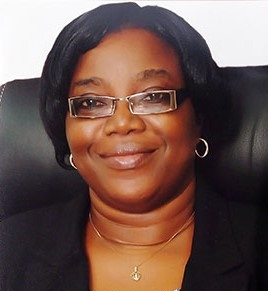
In 2014, Odeku travelled overseas for a course at the prestigious University of Osnabruek, Germany, where she got a Certificate in Modern Higher Education Management and Leadership. In recognition of her contribution to the pharmacy profession, she was made a Fellow of the West African Postgraduate College of Pharmacists (WAPCP) in 2013.
Indeed, within the space of 16 years, Odeku has won scholarships, fellowships, grants and awards such as UNESCO/Israel co-sponsored Post-doctoral Fellowship (2000); John D. and Catherine MacArthur Foundation Staff Development Grant (2003); CAS-TWAS Visiting Scholar Fellowship (2004); George Foster Fellowship of the Alexander von Humboldt Foundation (2006); CSIR/ TWAS Postdoctoral Research Fellowship (2006); Alexander von Humboldt Foundation (AvH) Return Fellowship (2008); DAAD Visiting Scholar Fellowship (2009) and CV Raman International Fellowship for African Researchers (2012).
Others were NUC award for supervising the best thesis in Pharmacy for Year 2008 (2012); West African Research Association (WARA) Travel Grant (2012); AAU Staff Exchange Award (2015); TETFUND Conference Grant (2015) and Alexander von Humboldt Foundation (AvH) Re-visit Fellowship.
She is a member, Pharmaceutical Society of Nigeria (PSN); secretary, Faculty of Drug Production and Quality Assurance, West African Postgraduate College of Pharmacists (WAPCP) from 2017 to date; Fellow, West African Research Association (WARA); member, Africa Network for Internationalisation of Education (ANIE); member, West African Research and Innovation Management Association (WARIMA); member, Organisation for Women in Science in Developing World (OWSDW); member, Nigerian Association of Pharmacists in Academia (NAPA); and member, Association of Lady Pharmacists (ALPs).
Prof. Odeku is married, with children.
It is pertinent to be reminded that Nursing did not start in Nigeria as a university-based programme; it began just like Medicine, which started at Yaba College, as well as Pharmacy and Physiotherapy. However, while these other fields of study responded swiftly and positively to societal needs, alongside technological and scientific advancement in healthcare delivery, nursing education and professional development became victims of conspiracies from within and outside the profession, leading to foot dragging. The reasons for this include:
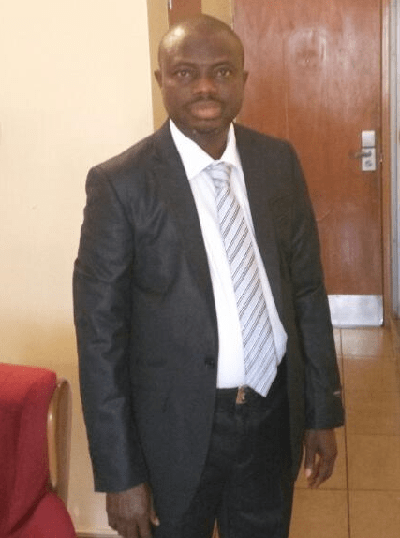
Gender complacency and satisfaction with the minimum;
Territorial protection by nursing leaders with limited education (inferiority complex);
Nurse scholars “educated nurses” superiority complex;
Welfare-oriented professional association;
Government’s lack of will to formulate and implement policies on nursing education;
Propaganda by detractors to picture a situation of lack of confidence and proclamation of professional incompetence in the products of basic nursing education;
Lack of cooperation and professional internal cohesion that led to external aggression and infiltration into the professional autonomy.
Consequently, nursing education and practices were rendered sluggish in development. Multiples of sub-degree programmes emerged, promoting subservient and utility workers rather than thinkers; policy implementers, rather than decision-makers and reformers.
Actualisation of the new schemes of service
It has been a long-standing battle to convince employers of labour that the regulatory agency for the education and practice of the nursing profession in Nigeria, the Nursing and Midwifery Council of Nigeria (NMCN), does not train nor have a register for any cadre of nursing called “nursing superintendents” or “nursing assistants” but professionals who are officers in the public service.
The dichotomy created by the variance in nomenclatures, contrary to clarifications from NMCN, has meted out injustice and psychological trauma to members of the National Association of Nigeria Nurses and Midwives (NANNM), who have strived to acquire higher academic qualifications while still in service. Nurses have been made to revert back to lower grade levels in the name of conversion to the nursing officer’s cadre. However, the 39th National Council on Establishment (NCE) meeting which held in Minna July 2016 acceded to the prayers of NANNM, requesting the full implementation of the Industrial Arbitration Panel Award of 1981 that recognized the professional qualifying examination – with the award of Registered Nurse/Midwife (RN and RM) for nurses and midwives in Nigeria – as the pre-requisite for registration, certification and licensing for professional practice.
The approval ratified that all nurses in the country be recognised and regarded as “nursing officers”, irrespective of their training institutions and academic qualifications – either as graduates of schools of nursing and midwifery with an equivalent academic qualification of HND; or graduates of universities with bachelor’s degree in nursing sciences – provided that such graduates have sat and passed the same professional qualifying examination by the NMCN.
It was equally ratified that practising nurses who have possessed RN/RM and equally acquired a bachelor degree in nursing sciences should be converted laterally to enhance their career progression beyond grade level 14 in conformity with extant public service rules. This will ensure that not only will the discriminatory nomenclature of “nursing superintendent” be removed but that nurses who acquire additional qualification while still in service will enjoy seamless transition and continuity, without having to revert backwards on their grade levels to the pinnacle of their career.
By Comrade Nurse Abdrafiu Alani Adeniji
(National President, NANNM)
Resilience is less about “positive thinking” and less about fearlessness; it is more about your perseverance and courage. Both challenging times and times of joy are important lessons of life. They are like mentors, placing the right circumstances at the right moments of our life. The hopes are that you will have learnt your lessons from the previous events of difficulty or joy, and now apply them to this new experience that you now face, and so on. Let us learn first from the lessons of challenging times. We will return in another piece, on lessons to be learnt from times of joy.
A crucial life-changing quality needed through any difficult situation — financial loss, loss of a job, divorce, relationship breakdown, death of someone close — is resilience. Emma Seppälä, in her very-worthy-to-read book ‘The Happiness Track’ describes resilience as:“…. The ability to quickly bounce back from the stressful situations you face every day ….”
An addition to this apt description of resilience would be one’s ability to remain centred on their purpose and persevere ahead. The power of purpose alone is a key driving force that maintains us at or close enough to, our centre, rather than lose hope and direction both of which are forces that spin us tangentially off our circle of life.
Anyone who has experienced a hurricane knows that the eye of the hurricane — its centre — is the calm around the storm. A wheel off-centred will cause one bumpy ride ahead. Being centred helps us to gracefully ride out the storms of life, and this centre is called resilience.
Resilience is underpinned by realistic thinking, not just positive thinking – and certainly not the kind of “positive thinking” that can be a mantra of affirmations, gravely detached from your very real suffering. Similarly, fearlessness, charging ahead, is rarely the answer. Without adequate self-care and working to transcend your fears — building courage — fearlessness will only lead to regret and possibly cynicism with one’s life. Hardened trees are often uprooted in storms; trees that sway in the heavy winds survive and grow stronger roots.
Winning strategies
So, what are key states of the mind which produce real positive outcomes that bring us out of our dark and difficult circumstances – bruised but standing in the light? Here are such key qualities that every challenge helps us build. If you appropriately learn the lessons of hardship we face, these qualities, internalised as habits, will see you through your dark storms and bring you to an illuminated path you will walk further on towards a fulfilling and memorable life. None of these qualities are easy to habitualise into our lives; but with intentional effort to embrace them, we will find their secrets in us whenever the need arises.
Difficult times teach us that nothing is perfect and challenges will come, but they will also go. After each difficulty, comes ease. Through each difficulty, one grows. A good way to accept what is, is by deferring to seek to know why it was so. Acceptance does not question, but understands the event, as it is well beyond our capacity to change results.
Acceptance alone is not sufficient, because it can cast one’s mind constantly into the future to replay the events that hurt you, or into a future where there is supposedly no pain. The past that has already occurred can never be undone, and replaying it in your mind will cause you despair. The future that has not yet arrived can only be of any help if you embrace the present, and worrying about it will only cause you anxiety. By being resilient, you live the present. A resilient person learns from the lessons gradually; they do not expect to know now. They are mindful of their emotions and regulate them. They move from the fight-or-flight tension of the difficulty, to the rest-and-digest period of the moment.
Blaming others whilst putting on hold your momentum to move forward only robs you of precious time, not of those who may have perpetrated a wrong upon you. Blaming yourself forces you into a self-serving victim. And both — self-blame and blaming others — keep you enslaved to the past, not allowing you to move forward towards the good that awaits.
One of the causes of the blame-game is not accepting the very real negative, yucky, feeling you undergo when you have to face a challenging trial. We are also hardwired, believe it or not, to reinforce negative thoughts. And feeding such thoughts by succumbing to it only leads you to not accept the reality that faces you, and worse, a slippery slope into depression and despair. But denying them will only make the negative feeling stronger. It is a bit of a paradox, but there is a way out – acknowledgement.
The remedy is acknowledging the feeling, by paying due attention to it, working through it, and seeking to understand what the emotions inform us about ourselves. Speaking to a trusted person, prayer and meditation, as well as physical exercise help build resilience against the crumbling feelings of negative emotions, by having a refreshed mind that is able to acknowledge and deal with them constructively.
The toughest of acts in the midst of hurt and trial is to respond to others virtuously. Abusive language, for example, thrown at you will not resolve a conflict by firing back a similarly weighted expletive. Calling such behaviour out and then silence and even moving on will bring far better results. Roughness and anger will never bring the pleasant results you seek that gentleness will. Make no mistake: virtue is not gullibility or weakness, but it is a strength, particularly in the midst of perceived weakness.
Over-thinking about what has transpired hardly will give a better understanding of what has been. Seeking to understand, progressively, and which includes lessons for your own self, is much needed, but very different from over-thinking. Over-thinking leads to seeking to blame a perceived enemy, seeking a perfect solution which does not exist, and asking irrelevant questions that tie you into an emotional knot.
To build resilience, find ways to relax and care for your emotional and possibly spiritual injuries. From prayer and meditation, to physical exercise and meeting with good and trusted people all provide a nurturing ground for self-care.
A crucial part of self-care, if not undertaken, can lead to self-victimisation and even selfish attitudes. Self-care must lead to appropriate and proper healing. And part of healing is to recognise that there is really no such thing as forgetting the past, but learning from that past. In addition, forgetting would entail a disregard of any wound that one may be left with, and if left unattended can fester into serious psychological sores.
Healing is about repairing with gentle care what has broken in you. Every injury leaves a scar, and therefore forgetting what caused it is nigh impossible, because all scars can be “felt”. What is possible is to repair the injury with elegance and a beauty that, upon healing, what emerges is a more beautiful, stronger and an evolved person. It is very similar to the wondrous Japanese art of Kintsugi. Gentle and elegant healing of ourselves is very similar to repairing precious broken pottery, with gold, except that what is seen is a refined and more attractive character when we heal ourselves properly.
The last thing you will need around you through a challenging time, is toxic people, who flame your inquisitiveness to search for blame, criticism and gossip of others, and even creating unreal scenarios which never actually occurred.
Negative energy will breed twice that negative energy. Incidentally, good energy will breed exponentially more good energy. A simple rule to live by is to surround yourself with good, trustworthy people who are interested in positive ideas, aspiring hopes and meaningful actions. They speak of issues to see the good in others and all things, and to solve problems, rather than speak of people to complain, criticise and cause more problems.
It is better, always, to be with good people than toxic people; and it is better still to not fear being alone than with even one toxic person.
Resilience does not arise by fighting others’ wrongs, but by identifying our own weaknesses and shortcomings that are often silently highlighted to us by the very incident in difficult times. Once we know our shortcomings, we can put a plan into action to remedy them, thereby becoming a better and stronger person.
Nothing increases you, mysteriously, than a true sense of gratitude. Why is this so? Being grateful immediately directs your focus on what you have rather than what you may not have or have lost. Losing a spouse in death, for example, is a painful experience; being grateful for your children or even your in-laws — your now gone spouse’s parents — and focusing on their wellbeing is a liberating experience. It whispers so many silent meanings that only the practitioner of gratitude can hear.
(Continues next edition)
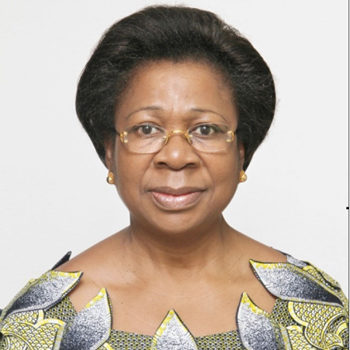
With the burden of infectious diseases that sub-Saharan Africa has to grapple with, particularly the spread of tropical diseases such as malaria, tuberculosis and onchocerciasis (river blindness), there is so much for which to appreciate the efforts of public health professionals and researchers like Professor Uche Veronica Amazigo, who continuously work towards improving the quality of life of millions of Africans.
Prof. Amazigo is an internationally renowned public health administrator, biologist and professor of medical parasitology and public health. She is well recognised for her research on onchocerciasis and the introduction and application of the innovative, community-directed treatment mechanism in the control of neglected tropical diseases. She played a pivotal part in the success of onchocerciasis control by strengthening community health systems and helping to engage and empower 500,000 communities across 19 countries covered by the African Programme on Onchocerciasis (APOC) established by the World Health Organisation while she was director of the programme from 2005-2011.
Onchocerciasis is the world’s second leading infectious cause of blindness. As a public health problem, the disease is most closely associated with Africa, where it constitutes a serious obstacle to socio-economic development. Out of some 120 million people worldwide who are at risk of onchocerciasis, 96 per cent are in Africa. It thus becomes apparent why Amazigo’s efforts at taming the disease and others have gained widespread recognition and accolades.
Path to prominence
Uche Amazigo was born to the Onubogu family of Enugu State, Nigeria. She received her Ph.D in Biology and Medical Parasitology from the University of Vienna, Austria. She also holds a Diploma in Tropical Medicine and Parasitology from the Bernhard-Nocht Institute of Tropical Medicine in Hamburg, Germany, as well a Fellowship in International Health from the Harvard T.H. Chan School of Public Health.
Early in her career, Amazigo worked as a senior lecturer at the University of Nsukka, Enugu State, where she taught medical parasitology and public health. It was during this period that she began studying onchocerciasis (river blindness) after encountering a pregnant woman plagued by the disease’s itchy lesions and depigmentation during her travels around the area in 1991. She joined a rural women’s support group in order to better study the social effects that the disease had on rural communities. She then applied for and received a research grant from the United Nations’ Special Programme for Research and Training in Tropical Diseases (TPROF) in order to continue her research into river blindness.
Amazigo’s pioneering research on the social impact of river blindness in rural Nigeria revealed, for the first time, startling results about the social isolation, stigmatisation, suffering and disability caused by the disfigurement and unrelenting itching from the disease. This discovery brought international awareness on the morbidity due to river blindness and its social implications.
Amazigo worked for the TPR for several years, within which she developed a programme for training community workers to treat themselves and others, as well as keeping record books of the treatments. She brought her findings to the WHO, where her studies were replicated. The results from this replication resulted in the founding of the African Programme for Onchocerciasis Control (APOC) in 1995.
Exploits and influence
Amazigo joined the APOC as a scientist in 1996. Her work with the APOC was built upon her work with the TPROF programme, and resulted in the development of Community-Directed Treatment with Ivermectin (CDTI), with the use of Ivermectin as the sole drug for treating Onchocerciasis. It is estimated that her CDTI strategy has resulted in the treatment of over 112.4 million people for Onchocerciasis, 11 million people for malaria control, and 37 million people for the control of other diseases.
Amazigo spent four years as the Chief of the WHO’s sustainable drug distribution unit from 2001 to 2005. She served as the director of APOC from 2005 until 2011. During this period, she engaged 16 African governments, 14 international non-governmental organisations (NGOs), 20 bilateral and multi-lateral donors, and pharmaceutical companies.
In 2007, with her visionary leadership skills, she initiated and spearheaded the introduction of a curriculum and training module on community-directed interventions (CDI) in Faculties of Medicine and Health Sciences in more than 14 universities in Africa.
Amazigo also initiated the scientific evaluations which provided evidence of possible elimination of river blindness in some sites in APOC countries including Kaduna and Ebonyi States, Nigeria, and spearheaded the repositioning of WHO/APOC from a control to an elimination Programme. She has over 55 publications in international peer-reviewed journals.
After retiring from APOC, she founded the Pan-African Community Initiative on Education and Health (PACIEH) in 2013. She is a member of the Board of Trustees of Sightsavers and the TY Danjuma Foundation. She is also on the Advisory Board of Massachusetts General Hospital (MGH) Centre for Global Health and Merck’s Global Advisory Board on Maternal Mortality.
Awards and Recognitions
Amazigo valuable contributions in health policy development, research, public-private partnership and sustainable community-driven health interventions have earned her many awards and recognitions, which include the Prince Mahidol Award, under the patronage of the Thai Royal Family. She was awarded a Knight of the National Order of merit of Burkina Faso, She was also recognised by the US Agency for International Development and the National Medical Research Institute of Tanzania.
Amazigo received the Prof. Jean Mayer Global Citizenship Award from Tufts University, Boston Massachusetts, USA. While working as the Director of the WHO/APOC programme, she was awarded the 1 million Euro António Champalimaud Vision Award in 2011, which is the biggest global award for outstanding contributions to the prevention of visual impairment and blindness.
She is a Fellow of the Nigerian Academy of Science; Harvard T.H. Chan School of Public Health; and Parasitology and Public Health Society of Nigeria.
Black palm kernel oil (BPKO), obtained from the edible seed (nut) inside the palm fruit from the palm tree (Elaies Guineensis), has been in existence for a long time without its benefits being appreciated. It is common in West African countries, especially Nigeria, where it is known locally as “ude aki” among the Igbos, “adi dudu” among the Yorubas, “mmayanya” in Efik and “manlade” among the Hausas. It is mostly seen in the rural areas and is very affordable.
Black palm kernel oil is a highly saturated vegetable oil; it does not contain cholesterol which might be harmful to health. BPKO is loaded with antioxidants, unsaturated fats, vitamin K, zero trans-fat and vitamin A. It has a long shelf life.

There are several methods of extracting palm kernel oil, but the traditional method is to heat the kernel (after removing the hard mesocarp) in a dry pot till the oil shows up. The oil extracted in this way is not normally used in cooking but for traditional medicine and lubrication. It is dark in colour, with a distinctively strong, nutty, roasted smell – resulting from of its method of extraction (roasting). Palm kernel oil can also be extracted by the cold press method to give a light yellow to clear oil.
Black PKO is one medicinal oil that is gradually disappearing from our shelves. It used to be an important home remedy for most life-threatening ailments in earlier years.
In children, BPKO is used to manage epilepsy, cold, and to strengthen the fontanel at 0-12 months old or even more. When a child is constipated, this “wonder oil” is applied to the anal region. It relaxes the muscles and results in easy bowel movement. BPKO is also used to treat children with high fever and convulsion, abdominal pain, as well as skin rashes.
The palm kernel oil is also reputed for helping the healing process of wounds and bruises. It prevents stretch marks when applied generously daily on the stomach during pregnancy. As the pregnancy advances, the palm kernel oil aids in the elasticity of the skin and prevents the cracks that usually lead to stretch marks.
As a good skin moisturizer, BPKO restores skin elasticity, thereby preventing wrinkles and protect the skin from harsh weather conditions. BPKO maximally accelerates hair growth, prevents excessive shedding, strengthens the roots of the hair, increases the softness and sheen of the hair, prevents hair breakages and treats the scalp.
BPKO is also applied on the surface of metal objects to prevent rust.
Locally made BPKO in Eastern part of Nigeria costs about 1,000 naira per bottle. Indeed, the wonders of black palm kernel oil cannot be overemphasised. It is a raw material for the manufacture of soaps, washing powders, hair creams and other personal care products.
Increased use of PKO for domestic, medicinal and commercial purposes will go a long way to benefit Nigeria at individual, local and national levels.
By Ngozika Okoye, FPCPharm, MSc, MPH (Nigeria Natural Medicine Development Agency)
How often in your life do you sit down and count your blessings? How many times have you cast your mind to the past to recollect any of your family members, friends, course mates, colleagues, co-workers, family friends or even neighbours that have passed to the great beyond? If you can recall just one person who is close to you who has been lost to the cold hands of death in the past, then, it is enough to give thanks and praises to God who has kept you alive regardless of what is happening in your life right now.
Interestingly, some of our dear ones we hadlost in the past were those we never expected to be struck by death even in the next 20 to 30 years. Here we are, they’ve all gone. God’s plan is quite different from man’s plan. Also you should bear it in mind that God is not wicked and has full grasp of everything that happens in our lives. This truism emphasizes the importance of gratitude in daily life. Let’s always thank God as if we will not have another opportunity to praise and worship him anew. I strongly believe that the essence of our creation is worship and the best and most honourable form of worship in God’s sight is gratitude.
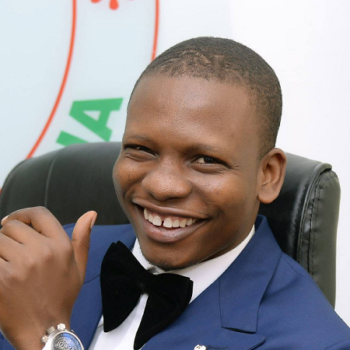
Gratitude is a forward drive for anyone who is keen on achieving success and living a fulfilled life. We must be grateful to God, our parents, our family, our friends and our loved ones for whatever “small” or “big” favours rendered to us.”
Henry Ward Beecher submitted, “The unthankful discovers no mercy, but the thankful heart will find in every hour, some heavenly blessings.” The more you thank, the more you will obtain. Gratitude gives you a sense of progress.
Gratitude allows us to think, thank and count our blessings. When you sit down and count those things you should be grateful for, you will always realise profit. If we get everything we want, we will soon want nothing to get. Stop complaining about what you do not have, be grateful for what you have. Focus on your blessing and feel grateful for them. The more you do this, the more you have reasons to be grateful. Roman philosopher, orator, politician and lawyer Cicero remarked, “A thankful heart is not only the greatest virtue, but the parents of all virtues.” The higher the altitude of your gratitude, the better your spiritual health will be.
Just like we need nutritious food for a healthy body, relevant information for a sharp mind, our souls need gratitude to blossom. Studies have shown that grateful people are more successful and innovative. Gratitude fuels happiness, happiness fuels success and success builds our confidence.
Whatever your condition and position in life, you must have cause to be grateful. There must be cause for, and a source of, happiness in your life. Let us always remember the words of Maxim Gorky: “Happiness always looks small while you hold it in your hands, but let it go, and you learn at once how big and precious it is.”
Be grateful for those things that bring you happiness. If you are stressed, frustrated, or depressed right now, you can effectively use gratitude to change your condition. Every morning for seven days, write down ten things you are grateful for and express heartfelt gratitude for those things. You can start by being grateful for the gift of life, sound mind, good health or someone who truly care for you.
If the only prayer coming out of your mouth is “Thank you,” it will suffice. We should imbibe the attitude of George Herbert, who remarked, “Thou o Lord has given so much to me, give me one more thing, a grateful heart.”
A poem to ponder on
Thank God for the morning
It has a tale to tell
While other folks don’t wake up
We wake up pretty well
With good health, peace and happiness
We shouldn’t want to be ungrateful
For this stack of evidence
God is wonderful to us.
The above poem really shows that as long as we live, we have cause to be grateful to God. Gratitude is your key to your next level.
ACTION PLAN
I consciously count my blessings and feel heartfelt gratitude for them. I focus on the good things in my life. I find the good reasons to be thankful at all times.
AFFIRMATION
I am grateful for every moment of my life. I am blessed and highly favoured.
Sesan Kareem helps organizations and their workforce improve their productivity, performance, sales, communication and profitability. He is a result-oriented coach.